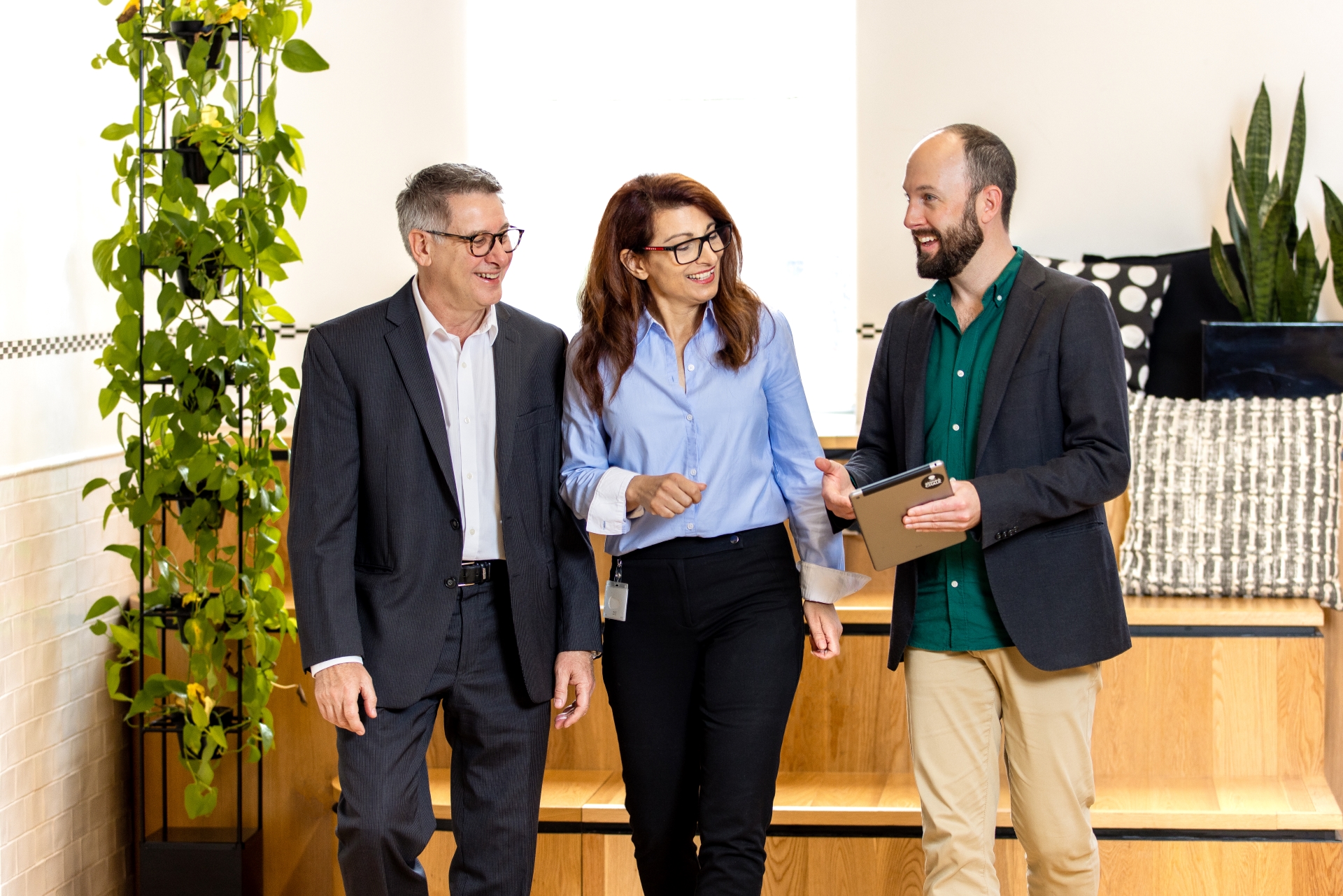Expert views on innovation and value of innovation districts
Posted July 17, 2023

From accelerated serendipity, range anxiety to gardening metaphors, leading experts give their views on innovation, the value of innovation districts and more…
Using analogies of rainforests and gardening, Professor Allan O’Connor has what could be described as an innovative approach to defining innovation.
One of Australia’s leading experts on entrepreneurship based at UniSA, Professor O’Connor says, at its core, innovation is something that is new, and it must add value.
But much like gardening or the complex ecosystem of a rainforest, innovation requires balance, support, symbiotic relationships, and the right conditions and interventions to ensure it can flourish.
“What we’re talking about is a diversity of things that’s happening within an ecosystem, which draws upon the analogy of a rainforest,” the Professor in Enterprise Dynamics explains of the push and pull of ecosystems, where innovation and entrepreneurship intersect, such as Lot Fourteen.
“You’ve got all these different species and kind of micro-climates that are struggling against each other, prevailing together and bringing a whole community together.
“And if you think of South Australia as a Botanic Garden, it is an area where you can get immense diversity, where you get this crisp set of interactions of different industries, technologies and ideas.”
If SA is the Botanic Garden, then the State Government is like the gardener, creating the ideal conditions for ideation and seeding of these ideas into various plots, he says.
He says the next step is to link these “plots” to create more diversity across the ideas, the talent, and the industries to have the “garden flourish” that creates the socioeconomic equivalent of a rainforest.
SA will create a state-wide model to connect innovation districts, including Lot Fourteen, Tonsley Innovation District and Adelaide BioMed City.
The model will cut across the state’s economic zones, stimulating economic growth in defence, space, advanced manufacturing, and critical technologies including renewable energy, cyber and artificial intelligence.
At Lot Fourteen, Stone & Chalk unites programs, investors, industry stakeholders and mentors in a single network to drive growth and commercial success for tech startups and scaleups.
Dr Tim Mahlberg, Stone & Chalk’s SA Director of Ecosystems, is devoted to supporting the end-to-end journey for startup founders and working to grow the innovation ecosystem in SA.
He says innovation is about “seeing potential”.
“I think people think of innovation as a kind of Big Bang, something that is radical and disrupts everything,” he says.
“I have the view that innovation is about improvement, it’s also about human agency, and self-determination, recognising that you can make a sustainable impact when you are in a system that supports you in making change.”
Stone & Chalk is helping to unlock the potential in nearly 60 startups representing some 200 residents in the incubator’s ecosystem.
“They want to make a difference in some way, and they’ve seen that technology is an enabler to do it,” Dr Mahlberg says.
He says investment in innovation districts can help to foster innovation through what he calls “accelerated serendipity”; the water-cooler or coffee machine talks, or organic interactions, that can flourish into something bigger.
“So, when (innovators) are here, they feel part of the social community, they identify as being an innovator and that gives them an incredible sense of energy,” he says
“The experience is what is at the heart of innovation communities and ecosystems; and that’s a big focus of Stone & Chalk.”
Innovation is also about solving the big problems, Dr Mahlberg says, such as applying technology in space, climate and agriculture.
One Lot Fourteen’s newest tenants is the Royal Automobile Association, or commonly known to South Australians as the RAA, which provides motor, home and travel services to more than 800,000 members.
The RAA was founded 120 years ago; today it’s the advent of electric vehicles, Internet of Things, and digital devices in the home powered by renewable energy that is propelling RAA through an accelerated period of reinvention and innovation.
“Innovation is in our DNA,” RAA Innovation Manager – Special Projects, Angela DiFabio says.
“When the RAA was founded, anyone driving a motor car would have been considered an early adopter of the technology.”
As motorists became increasingly concerned about “range anxiety”, RAA began door-to-door oil can deliveries to members in regional areas.
“Today, we’re playing a leading role in solving a new era of range anxiety – for EV drivers. RAA has begun the rollout of the state’s first border-to-border EV charging network of 140 charging sites, and is entrenched in how EVs will integrate with the home,” DiFabio says.
In a conscious decision to be part of the innovation ecosystem and drive collaboration to find solutions for tomorrow, RAA has located its innovation team at Lot Fourteen.
DiFabio says innovation is about creating new value “whether it be social or economic”.
For RAA, this is a combination of incremental innovation, using the best technology to better service members and the community, DiFabio explains, or deep innovation exploration such as drone technology.
She says basing staff at Lot Fourteen helps to elevate innovation through “osmosis…by living it, breathing it and bumping into people.”
“Those chance meetings, informal and formal networking is part of the tapestry of being in a rich ecosystem helping to discover and co-create what the future could look like,” she says.
Professor O’Connor says innovation succeeds in organisations where it is part of their culture.
“It’s seeded from the ground up and it becomes part of the DNA of the organisation to really look at new ideas and start to invest in them,” he says.
“Innovation takes a team and the diversity of ideas, talent, and perspectives to develop something that is new and value creating.”
Professor O’Connor says that just because an idea may not develop into a solution, that should not be the full stop in pushing ahead with innovation. Rather, failures should drive companies further.
“The question is always about what have we learnt from that process? Let’s look at why it didn’t work and how we can apply that thinking as we move forward,” he says.
Between academics to startups, corporations to government, it seems innovation can mean different things to different organisational cultures. And that’s fine. Lot Fourteen’s highly attuned ecosystem might not be at rainforest level complexity, but if we keep innovating who knows what we can collectively achieve.
Read more stories like this on Issue_01 of Lot Fourteen’s Boundless Magazine.
Great things come to those who subscribe
Subscribe
"*" indicates required fields
Adelaide 5000
Developed by Frame Creative
Design by The Sideways Theory
Design by Sixth Street Design
Developed by Frame Creative
© Lot Fourteen All Rights Reserved

